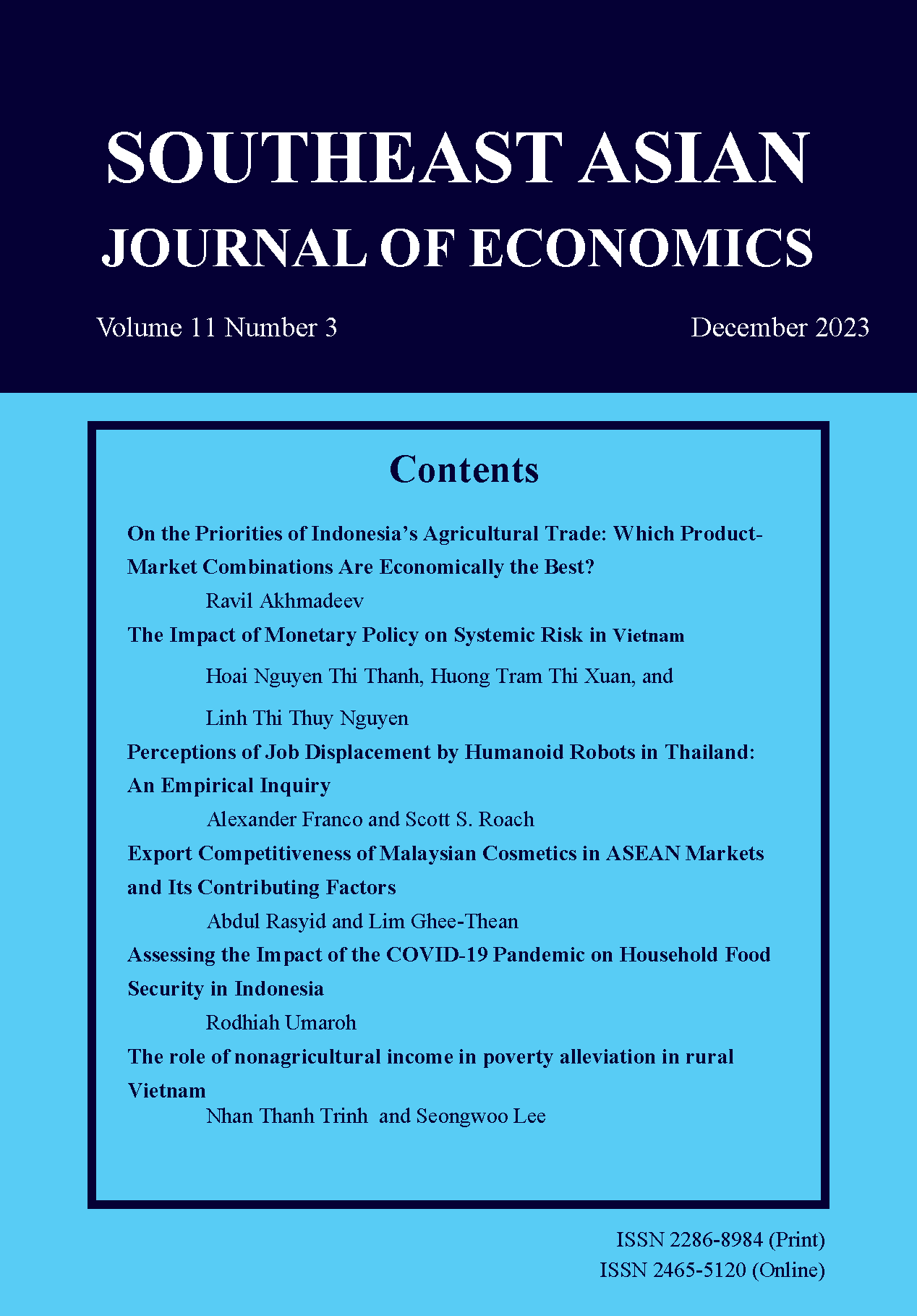Assessing the Impact of the COVID-19 Pandemic on Household Food Security in Indonesia
Keywords:
food insecurity, COVID-19, pandemic, safety netAbstract
The COVID-19 pandemic has led to a significant impact on global food security, particularly in developing and low-income countries. Therefore, this study investigates the implications of the COVID-19 pandemic on household food security in Indonesia, using national longitudinal data from the survey of High-Frequency Monitoring of the Impacts 2020. The result shows a reduction in food insecurity in 2021, and panel-ordered logistic regressions demonstrate that households with younger heads, lower education levels, female heads, larger sizes, rural residency, and lower income levels have a higher probability of experiencing the decline. Furthermore, the study highlights the role of remittances and safety-net programs in mitigating food insecurity. It provides a baseline analysis of the food security situation to improve targeted policies and deliver safety net programs to the poor and vulnerable groups directly impacted.
Downloads
Published
How to Cite
Issue
Section
License
Copyright (c) 2023 SOUTHEAST ASIAN JOURNAL OF ECONOMICS

This work is licensed under a Creative Commons Attribution-NonCommercial-NoDerivatives 4.0 International License.
The submission of a manuscript implies that the paper is an original work and has not been published elsewhere. The author(s) authorize the journal to reproduce or distribute the paper in printed or other electronic forms.







